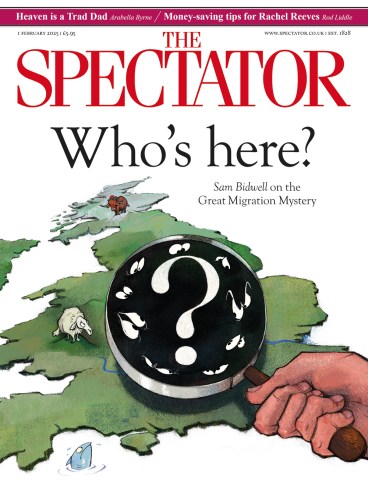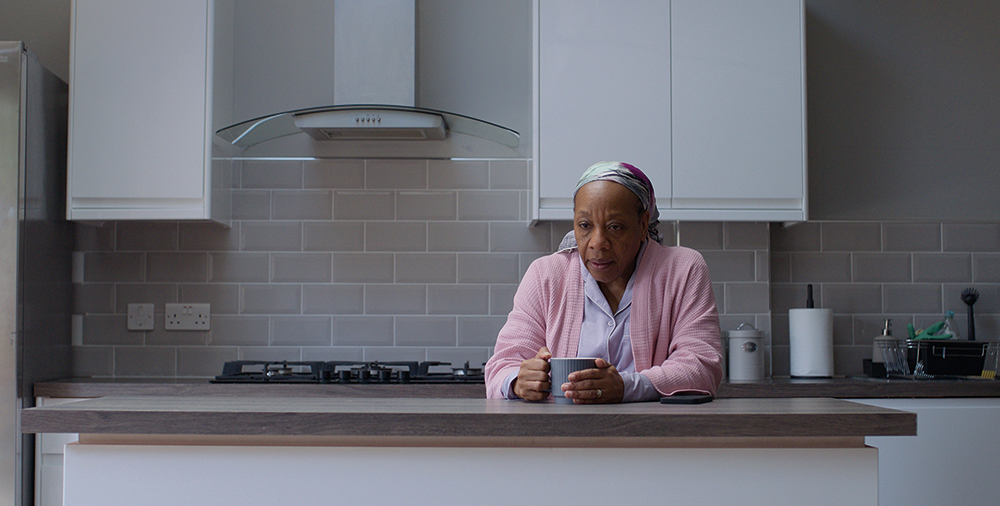
Pansy is meant to be a sympathetic figure, but I felt sorrier for those who had to put up with her
The central character in Mike Leigh’s Hard Truths is Pansy (Marianne Jean-Baptiste), an angry, bitter, late middle-aged woman who rages against everyone and everything. Against her husband, her son, chuggers, dogs in coats, shop assistants, babywear with pockets: ‘What’s it going to keep in its pocket?’ Everyone, Leigh has said, ‘knows a Pansy’. Or is one, he might have added. Or is in touch with their inner Pansy. Why does babywear have pockets?
This is not a cheerful film and, as with Leigh generally, there is no neat redemptive arc. The first thing I said to my companion when it finished was: ‘Well, that was horrible.’ Jean-Baptiste is magnificent, and the film is compelling, and it will linger in the mind, but it is also 90 minutes of watching someone being aggressively unhappy without properly knowing why. This Pansy certainly brought out my inner Pansy. I often wanted to shake her crossly and say: ‘Stop making everyone else’s life a misery and get help!’ She is meant to be a sympathetic figure but I felt sorrier for those who had to put up with her.
The film opens with Pansy first thing in the morning, sitting bolt upright in bed, presumably waking from some terrible dream. She lives in south London in a house that is spotlessly clean, but cold and soulless. She has a husband, Curtley (David Webber), a boiler engineer who constantly feels the lash of her tongue, as does their son, Moses (Tuwaine Barrett), who is 22 and mostly stays in his bedroom playing on a flight simulator or lying back on his bed while inspecting one of his model aeroplanes. Moses is a big fella who morosely drags himself around like a sad circus bear. Both he and his father are silent in the face of Pansy’s frequent tirades. Both have closed down.
Leigh famously develops a script with his actors and as part of that process they will write detailed back-stories for their characters. He also refrains from expository dialogue. All of which makes conversations feel authentic. I did, however, wish for a little explanation. Why don’t Curtley or Moses ever try to comfort Pansy? Is it because they’ve tried and given up? Or is she the way she is because they have never shown her any tenderness? I might have taken to her more if I understood the source of her pain.
The only person who does try to reach her is her younger sister, Chantelle (the lovely Michele Austin), a warm, cheerful hairdresser who lives with her two daughters in a home that’s full of colour and life and dancing. Chantelle is constantly rebuffed by her older sister but has the patience of a saint. A visit to their mother’s grave (she died five years earlier) reveals something about Pansy’s pain, but no sooner is that window opened than it closes again. Interestingly, one of Chantelle’s daughters has a bad day at work that she then pretends was a great one. Is this how we keep happy – by lying to ourselves and others? Does Pansy alienate everybody because she refuses to do that? Is she depressed, or does she just see life in all its awfulness, clearly and honestly? Like I said, it lingers.
The performances are tremendous, especially Jean-Baptiste, whose intensity never lets up. And if you’re a fan of Leigh, you will – probably – be a fan of this. The ending doesn’t tie everything up in a bow but it is at least uplifting for Moses. Moses, if you’re out there, I hope you get to travel on a plane one day. Fly away, boy, fly away!







Comments